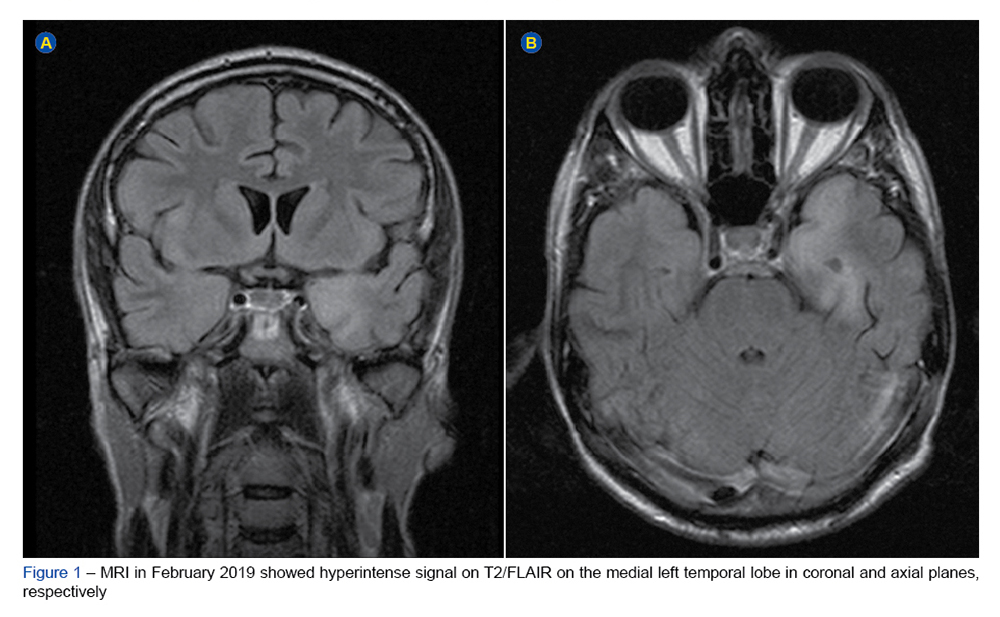SOCIAL MEDIA
Portuguese Medical Association's Scientific Journal

Encephalitis is characterized by inflammation of the brain. Literature describes autoimmune as one of the most common aetiology of non-infectious encephalitis. Given the similarities in clinical, imagological and laboratory findings with viral encephalitis and due to the wide variety of clinical features, the diagnosis is rather challenging and therefore physicians need an increased clinical suspicion to make the correct diagnosis. We report a case of a 35-year-old male with no past medical history that presented with two episodes of autoimmune encephalitis in a 6-month period. Despite having the typical clinical presentation and imagological findings consistent with autoimmune encephalitis, this case had negative results for antibodies, which delayed the diagnosis. It is essential to highlight the importance of considering the hypothesis of autoimmune aetiology on the differential diagnosis of all patients presenting with clinical and magnetic resonance imaging results suggestive of probable encephalitis, regardless of the negative antibodies results. This case clearly depicts the difficulties of diagnosing and treating an autoimmune encephalitis. The main goal of this case report is to increase awareness towards early diagnosis to promptly implement a specific treatment that has proven to improve the outcome and prognosis.